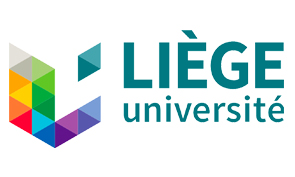
ULiège: Products, Environment, Processes (PEPs)
University of Liège, Faculty of Applied Sciences, Department of Chemical Engineering
General expertise of the research group
The PEPs group (Products, Environment and Processes, about 40 researchers) is part of the Department of Chemical Engineering at ULiège. In the PEPs group we are active in the fields of (bio)chemical reaction engineering, thermal and mechanical unit operations, process simulation, low carbon energy systems, CO2 capture and re-use, life cycle assessments (LCA) and sustainable development. The main objective of the research unit consists in optimizing performance and energy efficiency of processes in order to inflict minimal harm on the environment. This includes the corresponding fundamentals, especially mass and energy transfers and multi-phase fluid dynamics. A strength of our approach is to link the different scales in time and space:
- Starting from microscopic and even molecular level
- Having a strong focus on the equipment level in experiment as well as modelling
- Reaching up to the simulation of entire processes
- Evaluating the economic and environmental impacts for large-scale deployment
This allows us to reliably describe and optimize equipment performance based on physically sound modelling, which even includes extrapolation beyond the region of experiments. These tools permit a knowledge-based optimization of equipment design and operation parameters, as a basis for safe, sustainable and profitable scale-up of the processes. Indeed, the simulation of entire processes together with Life Cycle Assessment as eco-design support guide the optimization on the process level, where economic as well as environmental parameters are included in the evaluation. Experimental infrastructures are available for model development and validation, covering a wide range of applications. In addition, adequate chemical analysis equipment is used to determine gas and liquid phase compositions. Moreover, the majority of our methods and applications are developed in cooperation or at least in close contact with industry, including essentially all major chemical companies and a variety of local and European SMEs.
Specific hydrogen- related expertise & research topics
- Use of hydrogen for CO2 hydrogenation reactions, including power-to-fuel and power-to-kerosene
- Process modeling and optimisation, including techno-economic assessment and process design
- Experimental design of pilot-scale benches for CO2 capture and re-use (CO2-to-kerosene)
Available equipment/tools
- Process modeling using Aspen One simulation tools, expertise available with following tools: Aspen Plus, Aspen dynamics, Aspen Custom Modeler…
- AEM electrolyser, capacity of 1.5 Nm³/h
- Experimental test benches for CO2 hydrogenation reactions: reverse Water-Gas-Shift reaction, Fischer-Tropsch synthesis (under construction)
Participating in FL/B/EU funded projects with H2 related research
- PROCURA (2020-2025): Project funded by the Belgian Energy Transition Research, its objective is to propose a roadmap for Power-to-X and carbon capture & utilization technologies in Belgium. https://procurabelgium.be/en
- 2021-2025: TRILATE: Project funded by the Belgian Energy Transition Fund; the TRILATE project studies the energy transition towards low-carbon processes in industrial clusters located in Belgium, The Netherlands and Germany; the role of ULiège is to provide process models for innovative low-carbon technologies that will then be used in system studies and strategic planning https://www.ugent.be/ea/emsme/en/research/eelab/ecm/trilate
- 2021-2025: Be-HyFE: BE-HyFE stands for Belgian Hydrogen Fundamental Expertise; the aim of the project is to create a Belgian homebase for academic hydrogen expertise by establishing a core group of 16 broadly trained and highly networked early-stage researchers who can, together with their extended academic peer-network, support the Belgian industry in finding both technological and societal solutions to essential hydrogen challenges https://www.behyfe.be/
- 2023-2025: FEDER, Decarbowal, CirculaCO2: Experimental and modeling study of the challenges towards a circular economy of CO2
- 2022-2025: Neutral-Kero-Lime (Walloon region & European Green Deal) : The NKL (Neutral-Kero-Lime) project brings together major industrial and academic players in Wallonia with the objective of creating important technological parts for the e-kerosene, lime and energy industries; more specifically, the backbone of this project revolves around the production of e-kerosene within Fischer-Tropsch reactors powered by green hydrogen and CO2 captured at the lime kiln outlet
- 2022-2026: Antoine Rouxhet, FRIA scholarship: Experimental and modelling study of a reverse water-gas shift reaction unit for integration in a Power-to-X process
- 2021-2025: European Green Deal, Environment and Energy transition platforms, Wallonia-Bruxelles Federation: Funding of remarkable experimental infrastructure for the energy transition https://nextgenbelgium.be/fr/projet/les-universit%C3%A9s-francophones-font-des-re cherches-sur-la-transition-%C3%A9nerg%C3%A9tique
- Official participation in projects abroad, as an unfunded partner: Informal collaboration:
- Expert for the Future of gas panel: Le rôle des vecteurs énergétiques gazeux dans une Belgique climatiquement neutre, SPF Economie https://economie.fgov.be/fr/publications/le-role-des-vecteurs
Main relevant publications
Contact persons
Prof. Grégoire LEONARD
g.leonard@uliege.be
ULiège | Department of Chemical Engineering
Université de Liège
Quartier Agora, B6A
11, Allée du 6 Août
4000 LIEGE (Sart Tilman)

